
Non-Vascular Plants, Vegetation Around Las Vegas
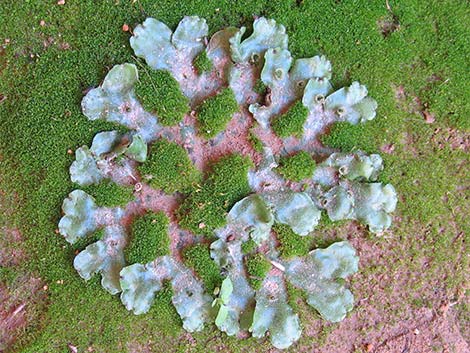 Thallose liverwort (possibly Marchantia polymorpha) |
Liverworts, also called Hepatics, are a diverse group of non-vascular plants (Division Marchantiophyta) that occur in two basic forms: thallose liverworts and leafy liverworts. Thallose liverworts grow as prostrate, flattened, ribbon-like branching plants lacking separate stems and leaves. Leafy liverworts have flat stems and overlapping leaves in three or more ranks, the middle rank differing from the outer two. Liverworts are bryophytes, and all bryophytes are unusual because in their life cycle, the gametophyte is the dominant life form (the plant cells are haploid with only one set of chromosomes). Compared to "regular" plants, this would be like having pollen or ovules as the dominant life form, or compared to animals, it would be like having sperm or unfertilized eggs as the dominant life form. |
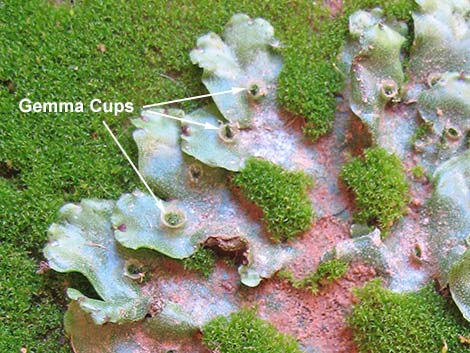 Thallose liverwort with propagate Gemma Cups |
Liverworts are male or female, of if both, produce male and female reproductive parts on different leaves. Liverworts reproduce sexually by producing male antheridial heads and female archegonial heads. Antheridial heads produce sperm (each with two tails), and when the sperm are released, they swim in water on the plant or water on the ground to find an archegonial head. When they find a head, they swim up onto the structure, then down a narrow tube to reach the egg cell, and finally initiate fertilization. The fertilized egg develops into a diploid sporophyte. The sporophyte develops spore-producing cells, undergoes meiosis, and eventually releases mature haploid spores into the air where they can be dispersed on the wind. |
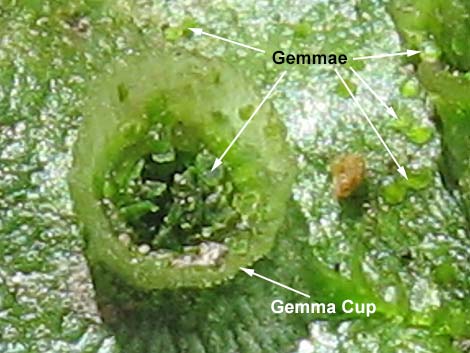 |
Thallose liverworts also produce gemma cups (splash cups) on the top of the leaves that function in asexual reproduction. Each gemma cup produces numerous tiny gemmae that are released to the environment when the cup fills with water or when raindrops splash them out. Gemmae grow into new plants. Around Las Vegas, look for liverworts in moist places from the desert to the mountains. For more information, see the liverwort page in Wikipedia. |
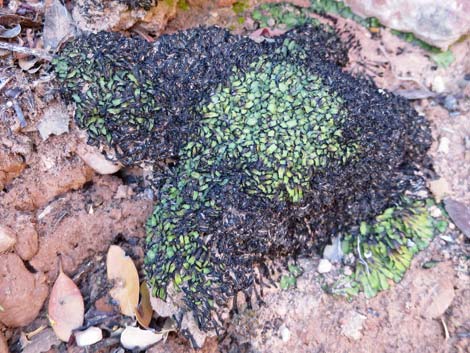 A large patch of Liverworts |
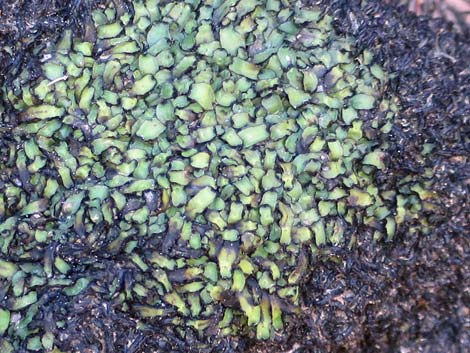 A large patch of Liverworts |
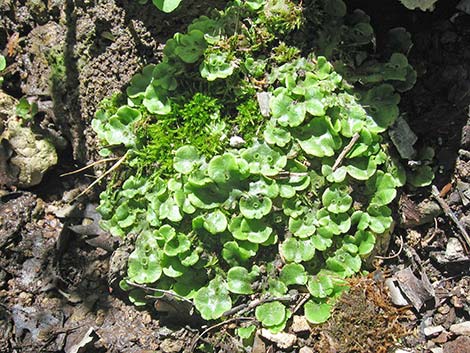 |
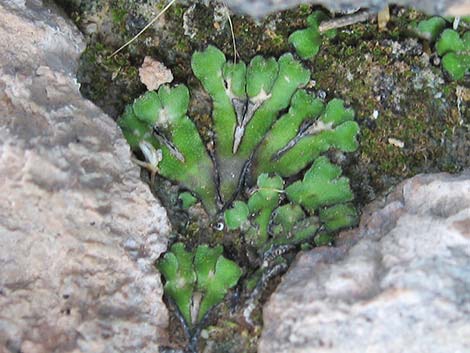 |
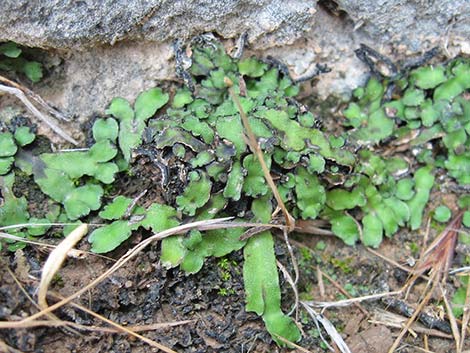 |
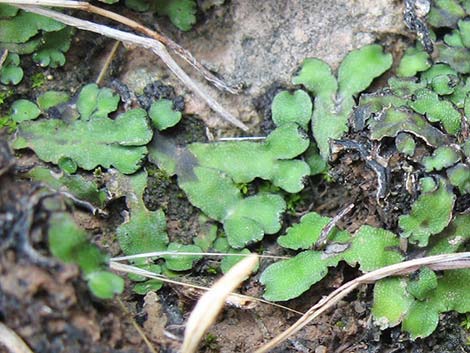 |
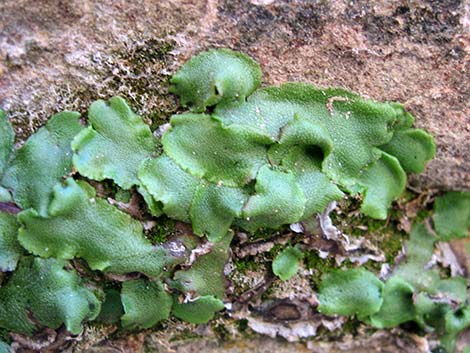 |
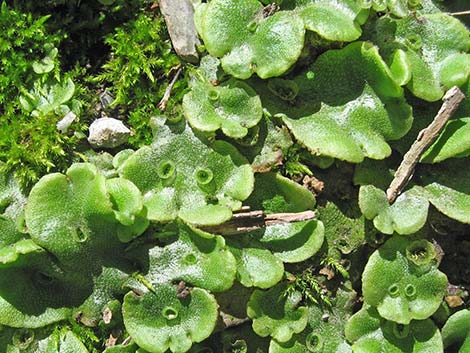 |
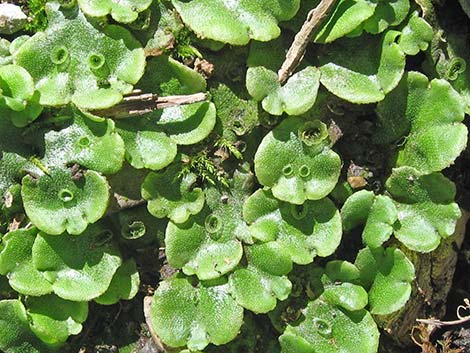 |
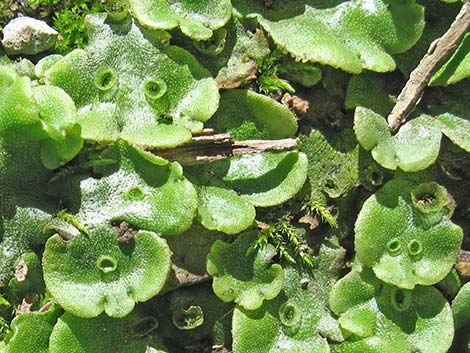 |
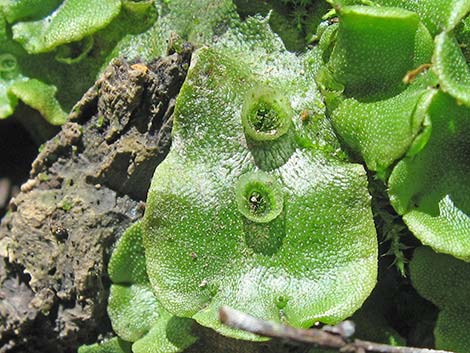 |
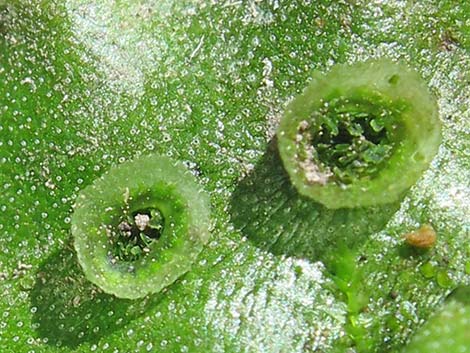 |
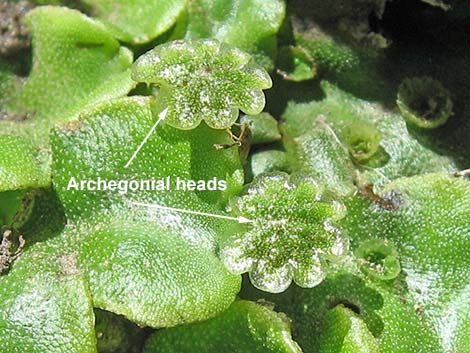 Thallose liverwort with two female archegonial heads |
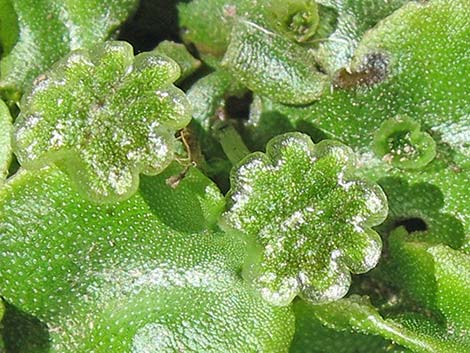 Thallose liverwort with two female archegonial heads |
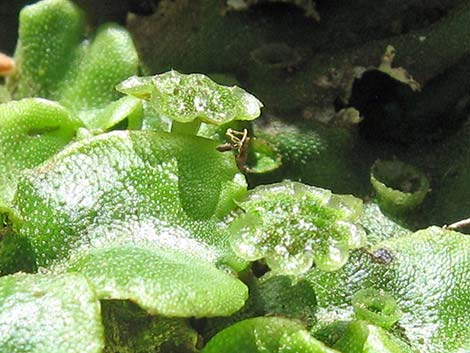 |
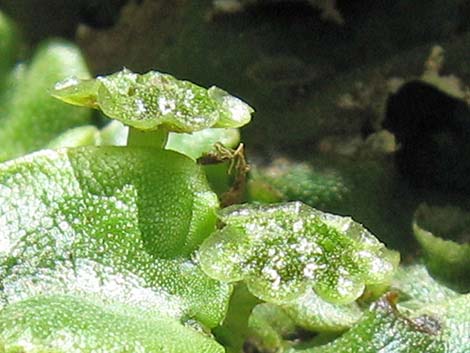 |
Note: All distances, elevations, and other facts are approximate. Names generally follow the USDA database.
![]() ; Last updated 240912
; Last updated 240912
| All Non-Vascular | Plant Species Index | Glossary | Copyright, Conditions, Disclaimer | Home |